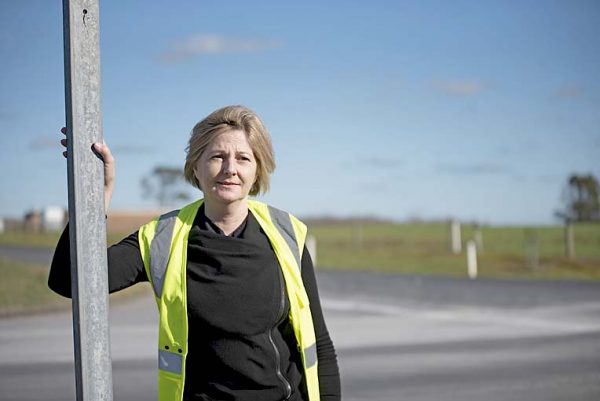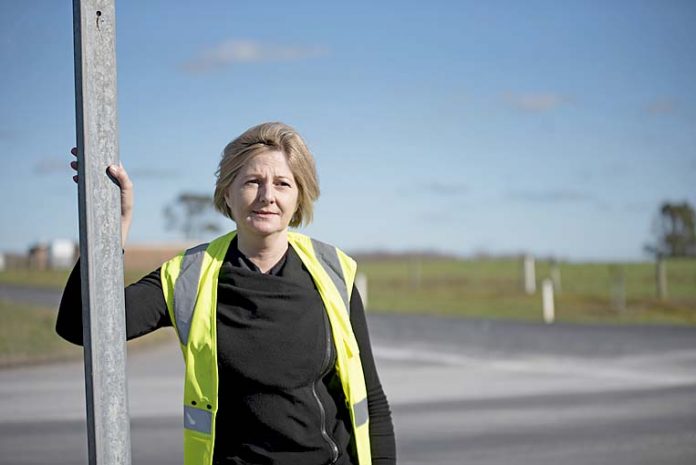
GRANT District Council says it is “reasonably confident” the Mount Gambier and District Saleyards will remain operational amid tightening border controls.
The changing rules fuelled concern earlier this week that Victorian buyers could breach border crossing rules if they attended Wednesday’s sale.
This could have potentially brought the livestock exchange to a sudden standstill given the majority of stock is sold to Victorian abattoirs.
Following urgent phone calls between council and SAPOL, interstate buyers are now classed under the category of an essential traveller “critical to maintaining key businesses or industry”.
In a move to ensure compliance, Limestone Coast Police attended the livestock exchange on Wednesday to check whether interstate buyers had the correct paperwork to travel into South Australia.
Officers also visited the site last Friday, prompted by an interstate meat-buyer flowing through the checkpoint at Mount Gambier.
According to council, police did not attend to monitor social distancing at the livestock exchange.
Council deputy chief executive officer Jane Fetherstonhaugh said the local government body had now received confirmation from SAPOL that Victorian buyers would not breach border restrictions.
“This had caused issues for the Victorian buyers, with staff and agents working very hard with SAPOL and SA Health to convince them that without the
Victorian buyers, the sale would not go ahead as 80 to 90pc of all livestock sold go to Victorian abattoirs,” Ms Fetherstonhaugh said.
“With a lot of phone calls, explanation of the sale process and reassurances, we got the go ahead from SAPOL on Tuesday afternoon that Victorian buyers would not be breaching the border restrictions by attending the sale.”
With help from Mount Gambier SAPOL officers, council convinced the COVID-19 division in Adelaide that interstate buyers were classed under the category of “skills critical to maintaining key businesses or industry”.
“The support from the Limestone Coast Police has been especially appreciated and we continue to work together on this issue,” Ms Fetherstonhaugh said.
She confirmed SAPOL also attended the saleyards last Friday.
“Contrary to the rumours that I have heard, they were not there to check on social distancing, nor were they there as a result of the COVIDsafe App being used,” Ms Fetherstonhaugh said.
She said their visit was sparked by a meat buyer from New South Wales going through the checkpoint in Mount Gambier before the sale.
“As this matter was reported through to the Adelaide team, which had no understanding of what a store sale actually was, local officers were sent out to observe how the sale operated,” Ms Fetherstonhaugh said.
“Officers had no issues about how the sale was conducted and were pleased with all of the measures taken by staff and agents.”
Ms Fetherstonhaugh revealed changes had been made to the weekly market and monthly store sale process to keep the business open during the COVID-19 pandemic.
People visiting the saleyards are required to sign in and out, with only those involved with the sale being permitted entry.
“These people are provided with an identification badge which must be worn at all times whilst on site. Social distancing at all locations is also required,” Ms Fetherstonhaugh said.
While the truck-wash has remained operational, all drivers are required to adhere to the 1.5 metre social distancing requirements and wear gloves when washing trucks.
The canteen is operating at a reduced capacity and only supplying takeaway meals.
“For the monthly store sale, we are allowing farmers to come in and inspect the stock before the sale starts, with them being required to leave by 9.30am,” Ms Fetherstonhaugh said.
Following this, only people directly involved in the sale are permitted on site.
“Farmers wishing to buy need to go through their agent and not be in attendance at the sale,” Ms Fetherstonhaugh added.
“We were reasonably confident that by putting all of these measures in place we would be able to stay open for business, keeping the agricultural supply chains operating.”
She reminded people further border restrictions had been put in place earlier this week.
Some essential travellers must now keep records of close contacts for a 14 day period starting on the date of arrival in South Australia.








